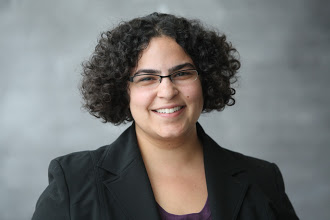My fellowship at the University of Baltimore Immigrant Rights Clinic became the foundation for my clinical teaching career. The community of clinicians at UBalt helped me connect with my passion for teaching, supported my early forays into legal scholarship, and helped me continue to grow and evolve as a clinician.†Sabrina Balgamwalla, Assistant Professor of Law; Director of the Asylum & Immigration Law Clinic, Wayne State University Law School.

The educational goals of the program are to provide an opportunity to strengthen legal practice skills, to reflect on legal practice, to learn clinical teaching methodology under the supervision of experienced faculty and to develop scholarship interests. Past fellows have gone on to positions as faculty members in law schools around the country.
Generally, a fellow's duties include:
- direct supervision of the case work of clinic students in coordination with clinic faculty and participation in clinic classroom activities;
- case coverage during semester breaks and summers;
- participation in the development of the clinical program.
Fellows supervise clinic students certified to practice under Rule 19-220 of the Maryland Rules Governing Admission to the Bar. Clinic students, who are in their second or third year of law school, devote an average of 20 hours per week to the clinical course for six academic credits. Most of the clinics are one-semester experiences, although students in some clinics may enroll for a second semester in the clinic for additional credits.
Fellows will develop professional goals with the assistance of the faculty member who directs the clinic. These goals will be designed to meet the fellow's substantive law, jurisprudential and scholarly interests and strengthen aspects of his/her performance as a lawyer and teacher.
For more information, please see our Fellowship Program description.

